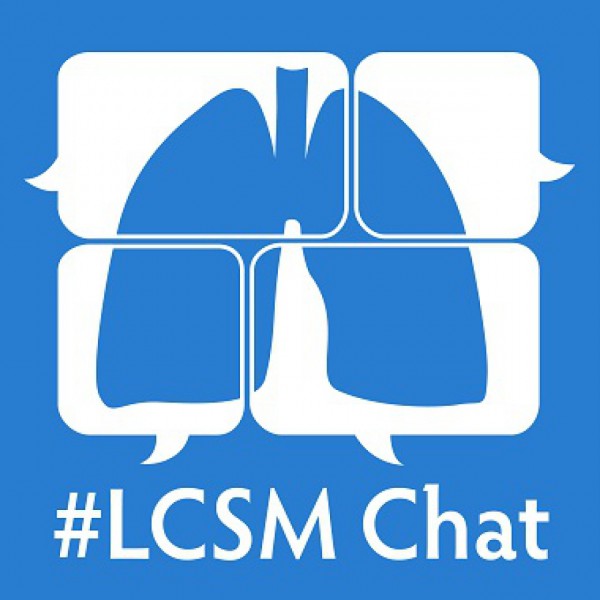Want to learn or write about the stigma associated with lung cancer? Here are some references.
In the early 1900s, people were encouraged to smoke cigarettes by marketing, the military, movie icons, even doctors. Tobacco ads represented smoking as a personal choice. In the 1940s and 50s, statistical population studies found lung cancer had a strong correlation with smoking. For years, anti-smoking ads displayed horrific images of people and lungs afflicted with lung cancer. The ads effectively reduced smoking. However, by emphasizing negative images of smokers and equating lung cancer with smoking in the public’s mind, the ads stigmatized smokers and lung cancer patients instead of villianizing tobacco. Big Tobacco continued to actively resist acknowledging that smoking is an addiction rather than a lifestyle choice. As a result, some lung cancer patients are blamed for their disease, even by family members and health care providers.
The “smoking equals lung cancer” meme has several downsides:
- Stigma increases depression and self-blame among lung cancer patients.
- Stigma reduces compassion people show to lung cancer patients as compared to patients who have other types of cancer.
- Stigma causes family members of lung cancer patients to feel shame regarding their loved one.
- Stigma reduces support and funding for lung cancer research–how else can one explain why funding for lung cancer, the #1 cancer killer, is significantly lower per death than funding for the other major cancers?
- Stigma hinders awareness that lung cancer has other risk factors.
Smoking is a known RISK FACTOR for lung cancer, but eliminating all smoking will not prevent all lung cancers. Never smoker lung cancer ranks among the top 10 most deadly cancers in the USA. - Stigma likely discourages people who have a smoking history from pursuing lung cancer screening, which was shown to reduce death due to lung cancer.
More references will be added to this page as we find them. If you find a reference we haven’t listed, please mention it in the comments.
Key Stigma-Fighting Messages:
- Anyone can get lung cancer–all you need is lungs.
- No one deserves to die from lung cancer.
- Rather than associating smoking with lung cancer only, say “Smoking is a risk factor for many diseases, including most cancers.”
- “Yes, it’s healthier not to smoke, but it’s not a sin that warrants the death penalty.” — Janet Freeman-Daily
STIGMA IS REAL AND AFFECTS PATIENTS, FAMILY MEMBERS, CLINICIANS, POLICY, AND RESEARCH FUNDING
Addressing the Stigma of Lung Cancer. American Lung Association.
The Lung Cancer Blame Game. Diane Mapes, Fred Hutchinson Cancer Research Center. This article about the stigma of lung cancer won a Global Lung Cancer Coalition Digital Media Award.
How Does a Lung Cancer Diagnosis Change a Life? Theodora Ross, MD, PhD, in Psychology Today.
Dear Lung Cancer Patient Who Didn’t Smoke. Guest blog by Karen “K” Latzka shares the impact of stigma from the perspective of a former smoker who was diagnosed with lung cancer long after she quit.
Lung Cancer Project. Genentech and lung cancer advocacy organizations. Lots of facts (with cited references) about impact of stigma on patients, including results of a survey showing bias against lung cancer patients as compared to patients who have breast cancer.
Differences in primary care clinicians’ approach to non-small cell lung cancer patients compared with breast cancer. This study in the Journal of Thoracic Oncology found primary care physicians were less likely to refer advanced lung cancer patients to a cancer specialist (compared to advanced breast cancer patients).
Lung cancer stigma: Causes, Prevalence, Impacts and Conceptual Model. Slide presentation by Andrea Borondy Kitts.
LUNG CANCER IS INCREASING IN NEVER SMOKERS
Lung Cancer Rates Surging in Never-Smokers. Roxanne Nelson, Medscape. Summarizes findings from presentations at 16th World Conference on Lung Cancer, September 2015, regarding the increase in never-smoker lung cancer rates.
LUNG CANCER HAS RISK FACTORS OTHER THAN SMOKING
Health Risks of Radon. US Environmental Protection Agency.
How Air Pollution Can Cause Cancer. Cancer Research UK.
The Connection between Lung Cancer and Outdoor Air Pollution. American Lung Association.
Occupational and Environmental Causes of Lung Cancer. Comprehensive discussion of lung carcinogens in a 2012 journal article in Clinics in Chest Medicine.
SMOKING IS A RISK FACTOR FOR ALL CANCERS AND MANY OTHER DISEASES–NOT JUST LUNG CANCER
Health Effects of Cigarette Smoking – Smoking & Tobacco Use. A fact sheet from the US Centers for Disease Control and Prevention (CDC). Provides statistics on how smoking affects the body, and lists all the cancers and diseases for which smoking is a risk factor.
Harms of Cigarette Smoking and Health Benefits of Quitting. National Cancer Institute. Lists diseases associated with smoking.
Understanding lung cancer risk in patients with inherited EGFR T790M mutations. Dana Farber Cancer Institute.
SMOKING IS ADDICTIVE AND TOUGH TO QUIT
Nicotine Addiction and Your Health. US Department of Health and Human Services BeTobaccoFree.gov website.
Why Is It So Hard To Quit? American Heart Association.
last updated 22-Jan-2017
